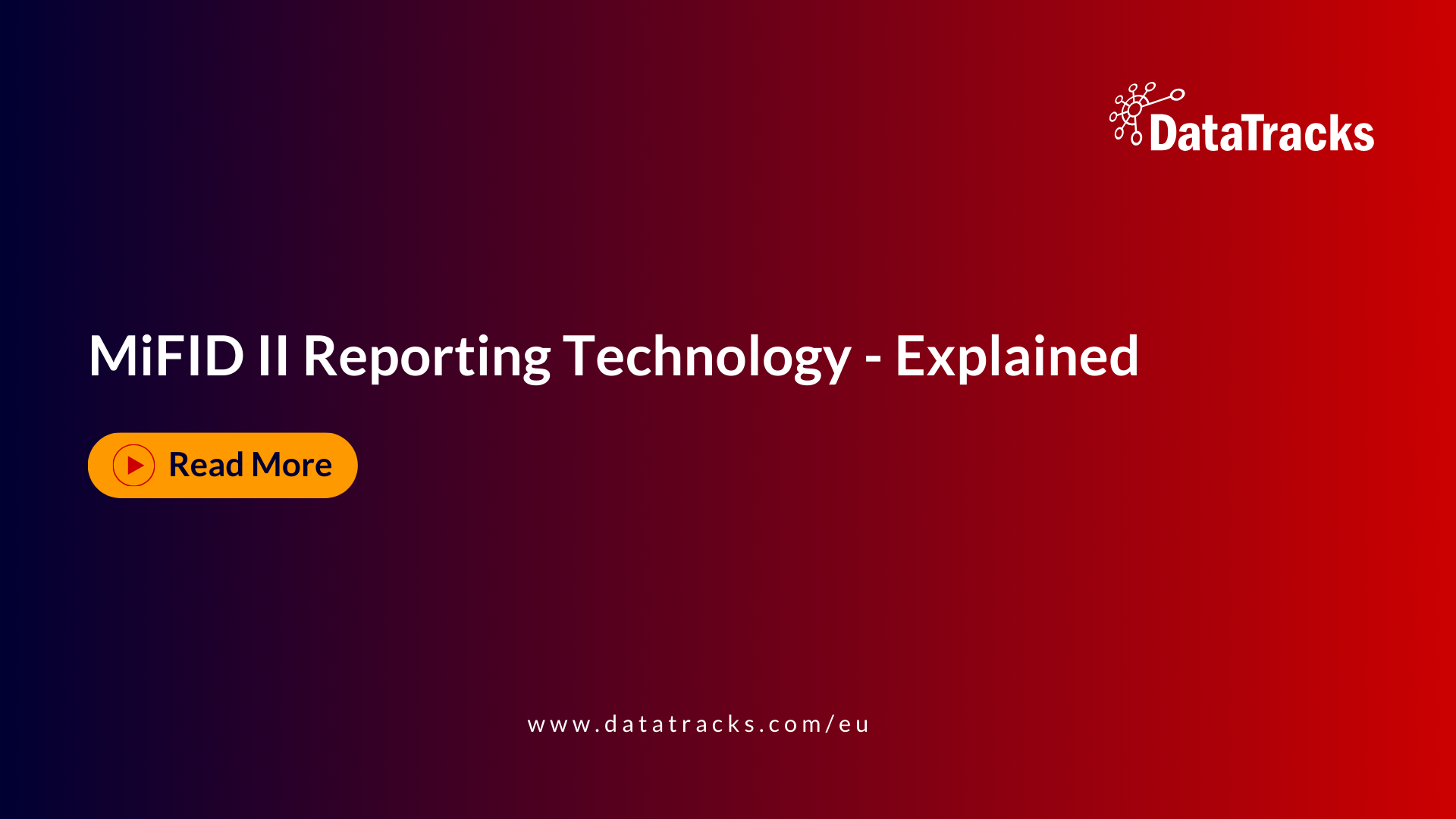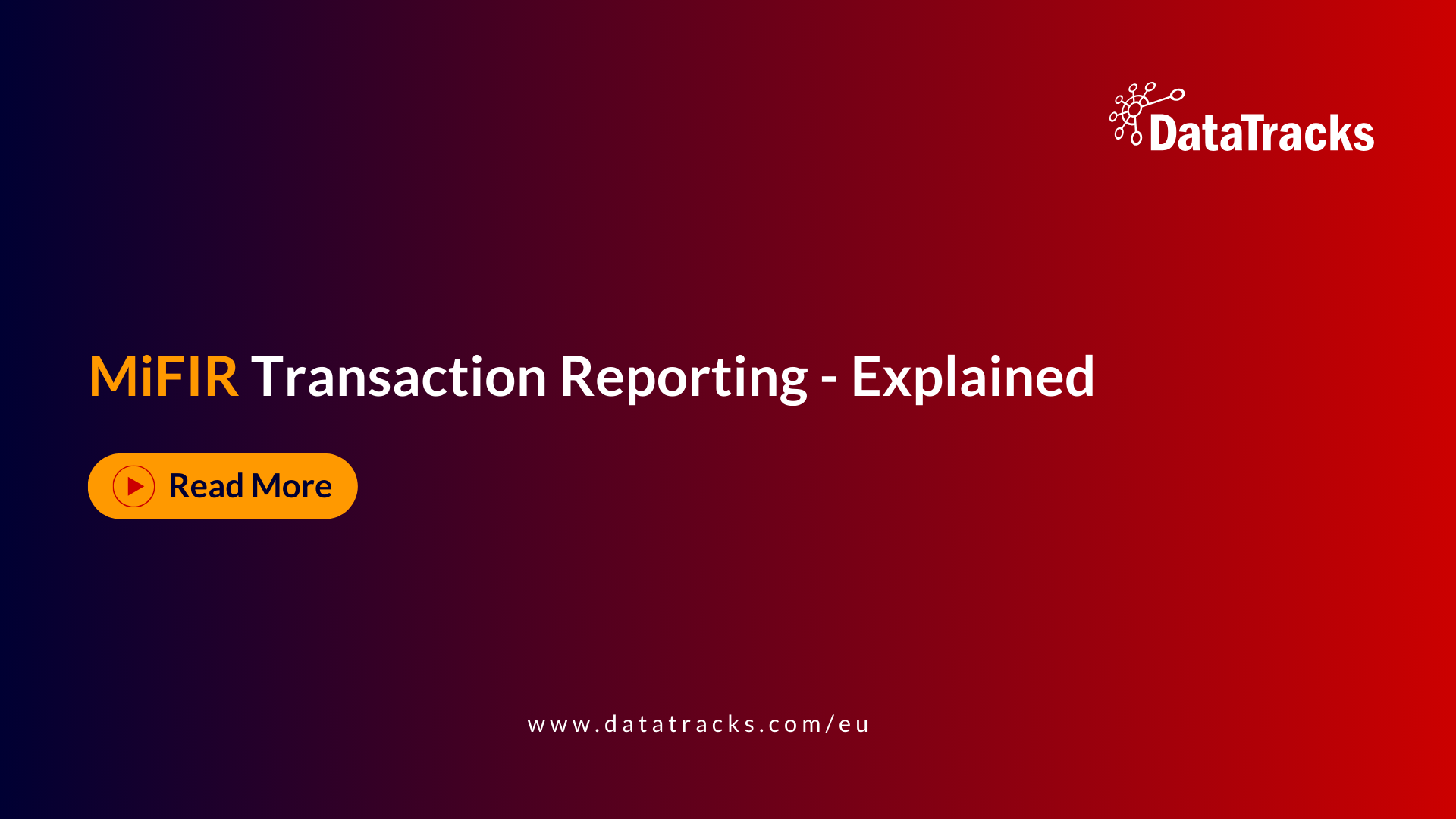Brexit’s impact on Trade Reporting (MiFID II/R)
Key Takeaways
- Loss of Passporting Rights: UK firms can no longer use passporting rights to operate freely in the EEA, and EEA firms face similar restrictions in the UK.
- Regulatory Divergence: The UK and EU may develop different regulatory frameworks, requiring firms to comply with two sets of rules for cross-border operations.
- Increased Compliance Requirements: Firms must navigate and adapt to the regulatory requirements of each jurisdiction they operate in, leading to potential increases in compliance costs and complexity.
- Third Country Status: Post-Brexit, UK firms are classified as third country firms under MiFID II/R, which imposes stricter rules and requires additional regulatory steps to continue serving EU clients.
- Market Access Challenges: Both UK and EEA firms face potential disruptions in accessing each other’s financial systems and markets, driving the need for new arrangements and negotiations to maintain market integration.
As European financial markets come to terms with the outcome of the UK referendum, Brexit has severe implications for the Markets in Financial Instruments Directive (MiFID). MiFID II/R is the cornerstone of EU’s regulation of financial markets. It aims to improve competitiveness in the EU by creating a unified market for investment activities and services, and to ensure a high degree of harmonised protection for investors. But if the UK — a leading financial institution of the world — exits the EU, will it still be required to implement these extensive and strict new regulations?
Brexit’s Impact on Financial Instruments
Loss of Passporting Rights
- UK Firms: Before Brexit, UK financial firms enjoyed passporting rights, which allowed them to operate freely across any EEA (European Economic Area) state without needing additional regulatory approvals. Post-Brexit, these rights are no longer valid, meaning UK firms must now obtain specific authorization to operate in each EEA country.
- EEA Firms: Similarly, EEA firms that previously operated in the UK under passporting rights must now seek authorization from UK regulators to continue their operations.
Need for Restructuring
- Operational Changes: Both UK and EEA firms will need to undertake significant restructuring to comply with new regulatory environments. This may include setting up new legal entities within the EEA or the UK, depending on where they intend to do business.
- Regulatory Compliance: Firms must adapt to the regulatory requirements of each jurisdiction, ensuring they meet local laws and standards to continue their operations smoothly.
Cross-Border MiFID Investment Services
- MiFID II Regime: Under MiFID II, non-EEA firms can offer investment services to professional clients in the EEA, provided they register with the European Securities and Markets Authority (ESMA).
- Equivalence Determination: For the UK to benefit from this regime, ESMA must determine that the UK’s regulatory framework is equivalent to that of the EU. This process is uncertain in both timing and outcome, creating a period of regulatory limbo for UK firms.
Regulatory Considerations
- UK Firms: When doing business in the EEA, UK firms must navigate the specific regulatory requirements of each EEA country. This involves understanding and complying with local financial regulations, which can vary significantly between countries.
- EEA Firms: EEA firms wishing to operate in the UK must similarly assess UK regulations to determine the necessary steps for compliance. This includes identifying activities that trigger local registration requirements and ensuring they meet all regulatory obligations.
Access to Clearing and Settlement Systems
- MiFID II/R Provisions: Under MiFID II/R, EEA member states are required to allow investment firms from other EEA countries access to their clearing and settlement systems, as well as their regulated markets.
- Post-Brexit: UK investment firms lose this automatic access, and will need to negotiate new arrangements to use these systems. Conversely, EEA firms also lose their automatic access to UK systems, creating potential disruptions in cross-border financial activities.
Potential for Negotiations
- Mutual Impact: Both UK and EEA firms face significant challenges due to the loss of passporting rights and automatic access to financial systems. This situation could lead to mutual negotiations to find workable solutions that maintain market access and integration.
- Constructive Outcome: Given the UK’s status as Europe’s leading financial center, there is a strong incentive for both sides to negotiate a constructive outcome. Continued collaboration and integration of financial markets and services are beneficial for economic stability and growth in both the UK and the EEA.
In summary, Brexit has created a complex regulatory landscape for financial firms, necessitating significant restructuring and compliance efforts. While challenges abound, there is also potential for negotiated solutions that preserve market integration and stability.
Impact of Brexit on Trade Reporting
Reporting Requirements for UK Firms
- OTC Derivatives Reporting: British firms dealing in Over the Counter (OTC) derivatives are required to report trades according to ESMA regulations, specifically:
- European Market Infrastructure Regulation (EMIR)
- Markets in Financial Instruments Directive II/Regulation (MiFID II/R)
Future of Trade Reporting Post-Brexit
- Uncertainty: One major concern for OTC derivatives firms is whether they will continue to report under EMIR and MiFID II/R or if the UK will establish its own trade reporting legislation.
- Historical Commitment: The UK has been a strong advocate for trade reporting and oversight of the OTC derivatives industry since the 2009 G20 summit in Pittsburgh. The country has actively contributed to the development of EMIR and MiFID II/R regulations.
Potential Developments
- Maintaining Commitment: The UK must decide whether to adhere to existing trade reporting requirements or develop its own framework. Maintaining a robust trade reporting regime is crucial to uphold the UK’s commitment to transparency and oversight in financial markets.
Changes for ‘Third Country Firms’
- Stricter Rules: MiFID II/R imposes stricter rules on ‘third country firms’, which are entities based outside the EU that trade financial products.
- UK as a Third Country: With Brexit, UK firms now fall under the ‘third country’ classification. This change means:
- Regulatory Requirements: UK firms providing services to EU clients must consider becoming regulated within the EU.
- Recognition under EMIR: EMIR requires non-EU countries to apply for recognition as third-party Central Counterparties (CCPs). This recognition is essential for UK firms to continue their operations without disruption.
Challenges for OTC Derivatives Firms
- Extensive Restrictions: The new classification and potential changes in trade reporting requirements impose significant restrictions on UK firms dealing in OTC derivatives.
- Regulatory Adaptation: Firms must adapt to these regulatory changes, which could involve additional compliance costs and operational adjustments to meet both UK and EU standards.
Brexit presents significant challenges for trade reporting, particularly for UK firms dealing in OTC derivatives. While the UK has a strong track record of supporting trade reporting regulations, it must now navigate its new status as a ‘third country’ under EU rules. This situation necessitates careful consideration of both maintaining existing commitments and potentially developing new regulatory frameworks to ensure continued market stability and compliance.
Introducing new requirements would mean the establishment of new trade reporting legislation and also trade repositories, requiring licensing to accommodate British regulation. Entities that have only just wrapped their head around ESMA and MiFID regulations and developed adequate systems to report trades compliantly will have to, once again, prepare for the development of updated requirements to accommodate new British regulation.
DataTracks helps firms meet MiFID II reporting requirements efficiently and accurately through its comprehensive software solutions. By utilizing DataTracks’ MIFID ii Reporting, firms can ensure compliance and streamline their reporting processes.
Frequently Asked Questions (FAQs)
What is MiFID II and how does it affect financial reporting?
MiFID II (Markets in Financial Instruments Directive II) is a comprehensive regulatory framework aimed at increasing transparency and improving investor protection in the financial markets. It introduces stringent reporting requirements, including the need to report more detailed information on financial transactions and client identities.
How does DataTracks’ software help with MiFID II compliance?
DataTracks offers specialized software solutions designed to meet MiFID II reporting requirements. Their software ensures that firms can manage the increased number of data fields, accurately identify clients, and comply with all regulatory obligations efficiently and effectively.
How many data fields are required under MiFID II reporting?
Under MiFID II, the number of required data fields has increased from 23 to 65. This expansion reflects the directive’s goal to enhance the detail and transparency of reported financial transactions.
What is a Legal Entity Identifier (LEI) and why is it important for MiFID II reporting?
A Legal Entity Identifier (LEI) is a unique code used to identify legal entities participating in financial transactions. Under MiFID II, LEIs are crucial for accurately identifying clients, particularly for funds and managed accounts, ensuring transparency and compliance in reporting.
How can firms streamline their MiFID II reporting processes?
Firms can streamline their MiFID II reporting processes by using specialized software solutions like those offered by DataTracks. These solutions help manage data efficiently, ensure accurate client identification, and automate reporting tasks to meet regulatory requirements seamlessly.




